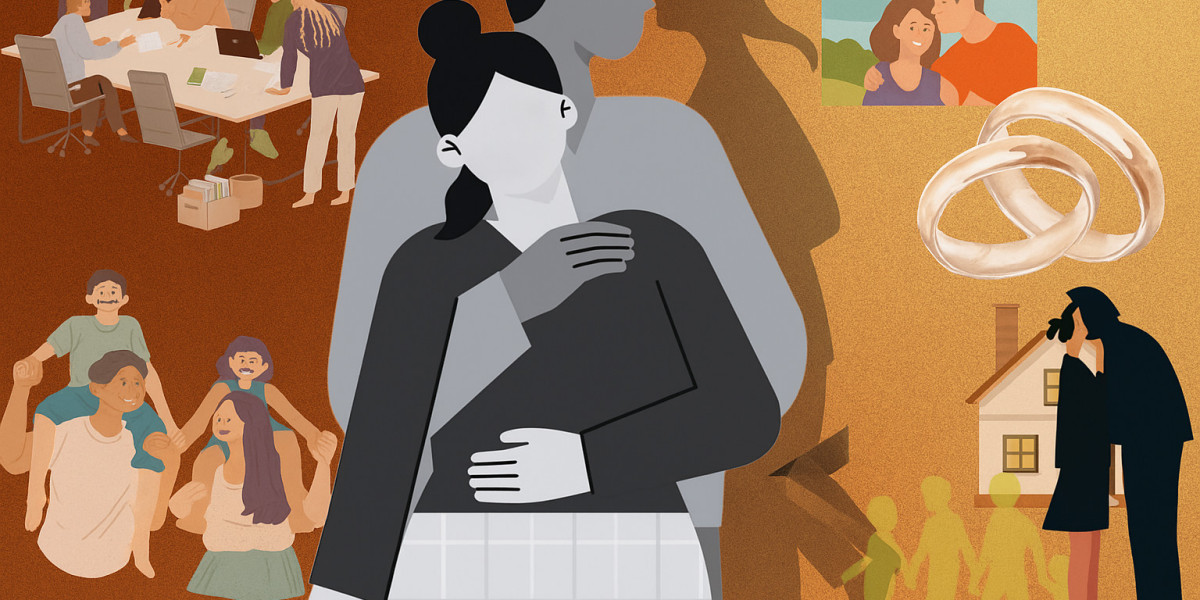Hormones play a crucial role in regulating many aspects of our health, including our sexual function and desire. Over the course of a marriage, hormonal changes in both partners can significantly affect a couple’s sex life. Understanding these changes and how they impact sexual desire, mood, and physical intimacy can help couples navigate challenges with compassion, communication, and practical solutions.
In this blog entry, we will explore the effects of hormonal changes in both men and women, the stages of life where these changes are most prominent, and tips for maintaining a fulfilling sex life during periods of hormonal fluctuation.
Understanding Hormones and Their Role in Sexual Function
Hormones are chemical messengers that regulate various bodily functions, including sexual desire, arousal, and performance. The primary hormones involved in sexual function are:
Testosterone: Known as the primary male sex hormone, testosterone is also present in women, though in smaller amounts. It plays a key role in sexual desire and libido for both genders.
Estrogen and Progesterone: These are the primary female sex hormones. Estrogen is responsible for sexual desire, vaginal lubrication, and overall mood, while progesterone is involved in regulating the menstrual cycle and pregnancy.
Oxytocin: Often referred to as the "love hormone," oxytocin is released during sexual activity and promotes bonding and emotional closeness.
Cortisol: This hormone is related to stress. Elevated cortisol levels can suppress sexual desire and interfere with overall sexual satisfaction.
Serotonin and Dopamine: These neurotransmitters regulate mood, pleasure, and overall mental well-being, all of which can influence sexual desire.
Hormonal fluctuations are normal throughout life, but at certain stages—such as during pregnancy, postpartum, menopause, or as men age—these changes can have a more pronounced effect on sexual health. Let’s take a closer look at how hormonal changes impact each partner.
Hormonal Changes in Women and Their Effect on Sex Life
Menstrual Cycle
During the menstrual cycle, hormonal levels fluctuate, with estrogen and testosterone rising in the first half and progesterone dominating the second half. Many women experience increased sexual desire around ovulation (mid-cycle), while some may notice a drop in libido during the premenstrual phase due to lower levels of estrogen and serotonin, leading to mood swings or irritability.
Tip: Communicate openly about how each phase of the menstrual cycle affects your mood and desire. Understanding these fluctuations helps both partners adjust their expectations and plan for moments of intimacy that feel natural.
Pregnancy and Postpartum
Pregnancy brings dramatic hormonal changes. Increased estrogen and progesterone can lead to heightened sexual desire in some women, while others may experience discomfort, nausea, or fatigue that reduces interest in sex. Postpartum, estrogen levels plummet, often leading to decreased libido, vaginal dryness, and mood swings. The demands of caring for a newborn can further affect sexual intimacy.
Tip: Postpartum sexual health requires patience, compassion, and open communication. Ensure both partners feel emotionally connected and explore non-sexual forms of intimacy while the body heals and hormones stabilize.
Perimenopause and Menopause
As women approach menopause, estrogen levels decline significantly, leading to symptoms such as vaginal dryness, thinning of vaginal tissues, and decreased libido. Emotional changes, including mood swings and irritability, are common. After menopause, sexual desire may continue to fluctuate, and some women experience discomfort during intercourse due to decreased estrogen.
Tip: Use lubricants or vaginal moisturizers to alleviate discomfort, and consider discussing hormone replacement therapy (HRT) with a healthcare provider if hormonal changes are severely affecting sexual health. Continue open conversations about shifting needs and desires.
Hormonal Changes in Men and Their Effect on Sex Life
Testosterone Decline
While men do not experience the same drastic hormonal shifts as women, testosterone levels gradually decline with age, starting in their 30s. Lower testosterone can lead to reduced libido, erectile dysfunction, and fatigue. Emotional symptoms, such as irritability or feelings of depression, can also arise.
Tip: Lifestyle changes like exercise, a healthy diet, and stress reduction can support testosterone levels. If testosterone decline is significantly impacting your sex life, consult with a healthcare provider about possible treatments such as testosterone therapy.
Stress and Cortisol
Chronic stress can cause an increase in cortisol, which interferes with testosterone production and overall sexual desire. Men who are under prolonged stress may experience a decrease in libido or struggle with performance anxiety.
Tip: Managing stress is crucial for maintaining hormonal balance. Incorporate relaxation techniques like mindfulness, yoga, or regular exercise to lower cortisol levels and improve both mental and sexual health.
Age-Related Changes
As men age, they may experience changes in sexual performance due to a combination of lower testosterone levels, reduced blood flow, and overall health. Erectile dysfunction becomes more common with age, though it can often be managed with lifestyle adjustments or medical intervention.
Tip: Address age-related sexual changes with a proactive approach. Stay physically active, maintain a healthy diet, and engage in open discussions with your partner about any challenges.
How Hormonal Changes Impact the Couple’s Relationship
While hormonal changes affect each partner individually, they inevitably influence the couple’s sex life and emotional connection. The key to maintaining a healthy sexual relationship during periods of hormonal fluctuation lies in understanding, patience, and communication.
Emotional Changes and Communication
Hormonal shifts can lead to emotional ups and downs. Women, in particular, may experience mood swings related to menstrual cycles, pregnancy, or menopause, while men may become more irritable or withdrawn due to testosterone decline or stress. These emotional changes can affect the couple’s sexual and emotional connection.
Tip: Approach emotional changes with empathy. Create a safe space for each partner to express how they’re feeling, both emotionally and physically. Support one another through these changes and remain open to adjusting sexual expectations.
Physical Changes and Adaptation
Hormonal changes can cause physical discomfort or decreased sexual desire, leading to frustration or misunderstandings within the relationship. Vaginal dryness, reduced libido, or erectile dysfunction may cause couples to feel disconnected.
Tip: Adapt your sexual routine to accommodate physical changes. Use lubricants, experiment with different forms of intimacy, and maintain a positive attitude about exploring new ways to connect physically. Seeking medical advice for more severe symptoms can also provide solutions.
Mutual Understanding and Patience
Hormonal changes can sometimes cause a mismatch in sexual desire between partners, leading to feelings of rejection or dissatisfaction. However, understanding that these fluctuations are often temporary and not a reflection of a lack of love or attraction is essential.
Tip: Practice patience and compassion when navigating differences in sexual desire. Focus on maintaining emotional intimacy and continue engaging in non-sexual forms of affection, such as cuddling, kissing, or spending quality time together.
Tips for Maintaining a Healthy Sex Life During Hormonal Changes
Focus on Emotional Intimacy
- Strengthen your emotional connection by spending quality time together, having open conversations about your relationship, and supporting each other through life’s challenges. Emotional intimacy can help sustain your sexual relationship even during times when hormones are affecting desire or performance.
Explore New Forms of Intimacy
- As hormonal changes impact sexual health, consider exploring new ways to connect physically. This might include non-penetrative sexual activities, sensual massage, or experimenting with different types of touch. Keep the focus on mutual pleasure rather than performance.
Consult with a Healthcare Provider
- If hormonal changes are significantly impacting your sex life, consider consulting with a healthcare provider. There are medical treatments available, such as hormone replacement therapy (HRT), testosterone therapy, or medications for erectile dysfunction, that can help restore sexual function.
Practice Self-Care
- Prioritizing self-care is essential for managing hormonal changes. Exercise regularly, eat a balanced diet, and get adequate sleep. These lifestyle habits can help regulate hormones and improve overall sexual health.
Be Open to Change
- As you and your partner experience hormonal changes over time, your sex life will naturally evolve. Be open to adjusting your expectations and exploring new ways to maintain a fulfilling sexual connection. Flexibility and a positive attitude will help sustain your relationship during these transitions.
Conclusion
Hormonal changes are a natural part of life, and they can have a profound impact on a couple’s sex life. However, with understanding, open communication, and a willingness to adapt, couples can maintain a healthy and fulfilling sexual relationship throughout the various stages of life. By focusing on emotional intimacy, exploring new forms of physical connection, and seeking support when needed, couples can navigate hormonal fluctuations while keeping their bond strong and resilient.



